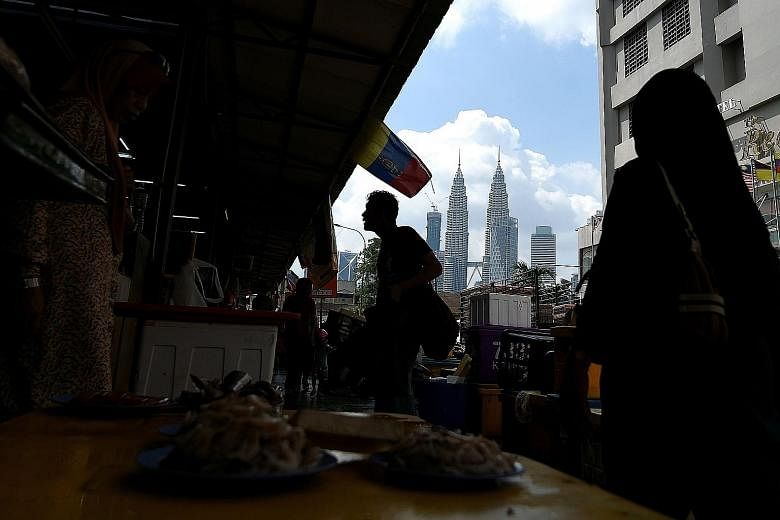KUALA LUMPUR • When the global trade rebound came this year, Malaysia held one advantage over its peers: the cheapest currency in South-east Asia.
The ringgit is down more than 7 per cent against the US dollar in the past year, even after recovering this year.
Exports from Indonesia to Vietnam are surging but Malaysia's shipments are growing the fastest, accelerating to a seven-year high of 33 per cent in May.
After a couple of years of slowing growth, declining investor sentiment and a corruption scandal involving a state-owned investment fund, Malaysia's fortunes are turning. The World Bank raised the nation's growth forecast in June by the most in East Asia, inflation is easing and foreign investors are more bullish on the stock market.
That is taking the pressure off the central bank to add more stimulus to the economy after last year's interest-rate cut.
"The ringgit went through a difficult period but it is now helping exporters," said economist at Oversea-Chinese Banking Corp in Singapore Wellian Wiranto.
"That is boosting the economy and with domestic consumption improving, the central bank is very, very likely to keep rates unchanged in the next six to 12 months."
Bank Negara Malaysia held its benchmark interest rate at 3 per cent yesterday.
"Bank Negara is in a sweet spot now," said Mr Irvin Seah, a senior economist at DBS Group Holdings in Singapore.
"We had a strong run in the first quarter in terms of gross domestic product growth and inflation is gradually moderating. This provides room for policymakers to maintain the policy."
The World Bank predicts Malaysia's economy will expand at least 4.9 per cent annually from this year to 2019, from 4.2 per cent last year.
Malaysia's exports are equivalent to about 70 per cent of gross domestic product in 2016 at constant prices, according to government data.
BLOOMBERG

